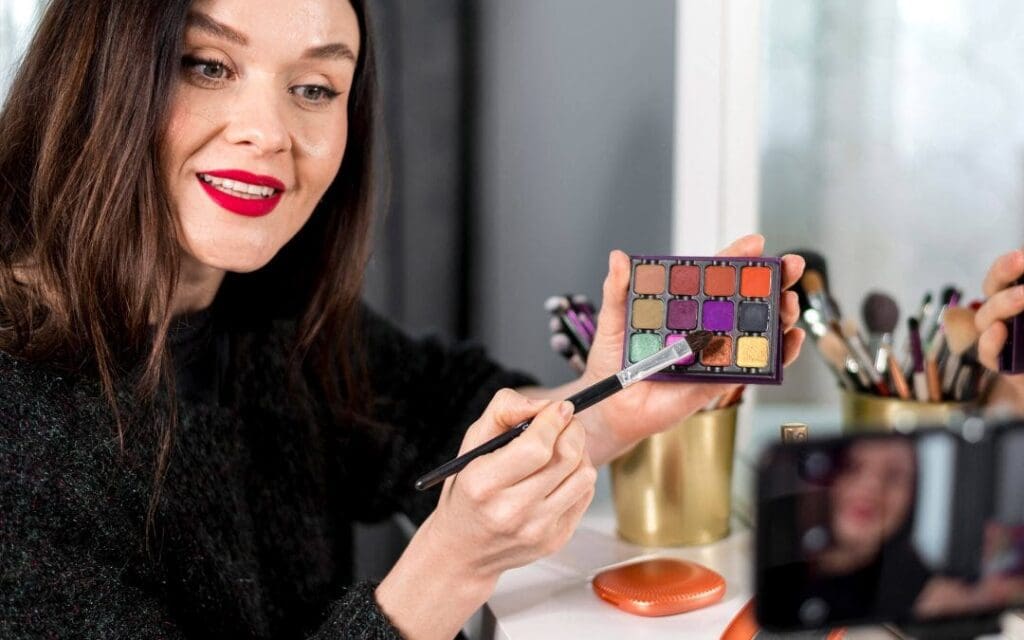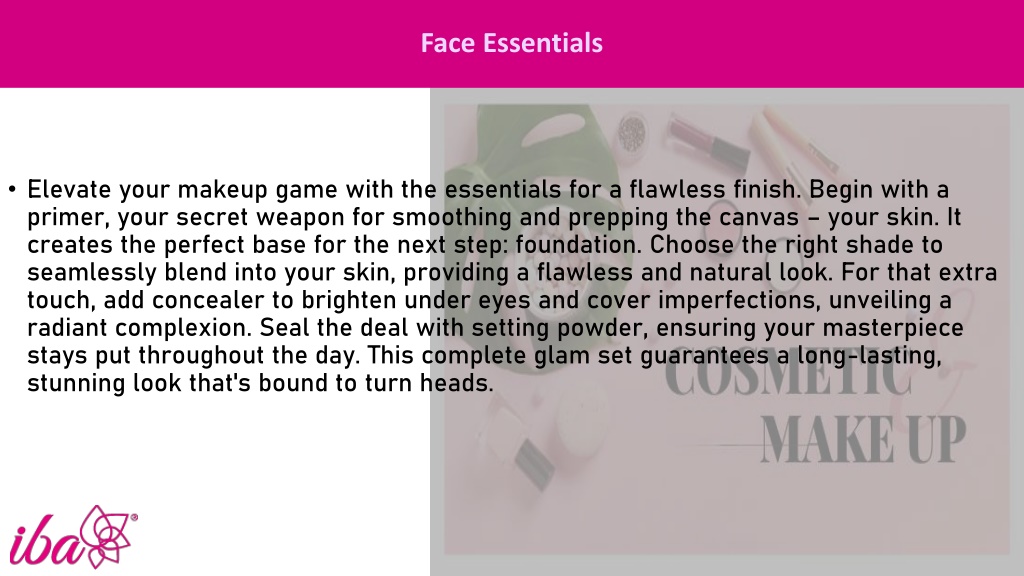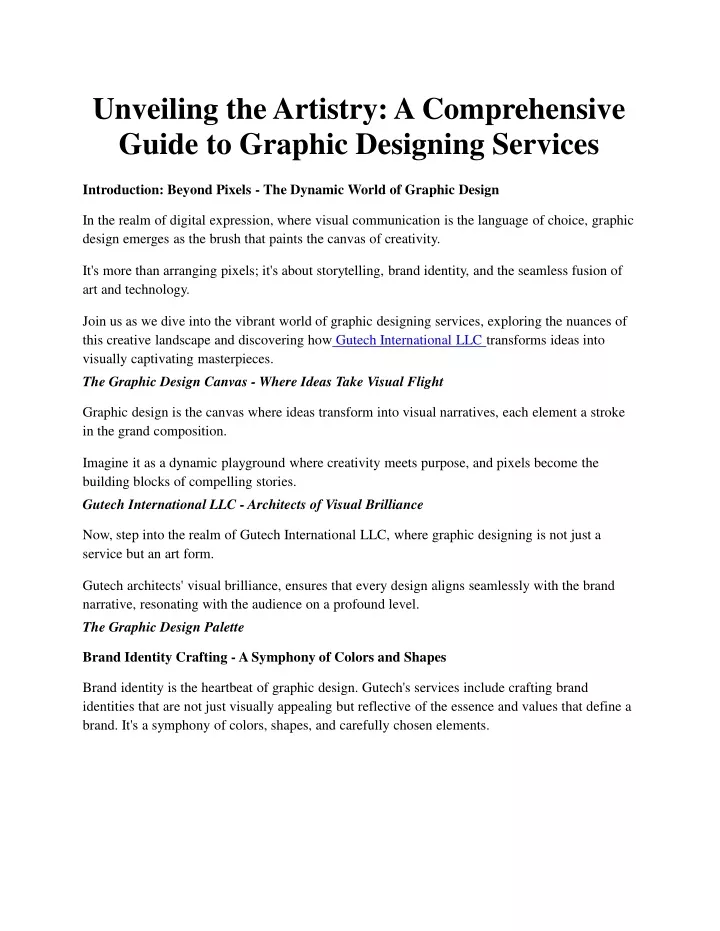Unveiling the World of Makeup Training: A Comprehensive Guide
Related Articles: Unveiling the World of Makeup Training: A Comprehensive Guide
Introduction
In this auspicious occasion, we are delighted to delve into the intriguing topic related to Unveiling the World of Makeup Training: A Comprehensive Guide. Let’s weave interesting information and offer fresh perspectives to the readers.
Table of Content
Unveiling the World of Makeup Training: A Comprehensive Guide

The allure of makeup is undeniable. It empowers individuals to express their creativity, enhance their natural beauty, and boost their confidence. But mastering the art of makeup requires more than just experimenting with products. It demands a deep understanding of techniques, color theory, and the nuances of different skin types and features. This is where makeup training comes in, providing individuals with the knowledge and skills to transform their passion into a professional pursuit or simply elevate their personal makeup skills.
The Importance of Makeup Training
Makeup training offers a multitude of benefits, both professionally and personally.
- Professional Advancement: For those seeking a career in the beauty industry, makeup training is a crucial stepping stone. It equips individuals with the necessary skills and knowledge to work as makeup artists, beauty consultants, or even start their own makeup businesses.
- Enhanced Skills and Confidence: Whether aiming for a professional career or simply enhancing personal skills, makeup training provides a structured learning environment. It allows individuals to refine their techniques, experiment with various products, and gain confidence in applying makeup for different occasions.
- Industry-Specific Knowledge: Makeup training programs often delve into the technical aspects of makeup, including color theory, skin types, product knowledge, and sanitation practices. This knowledge is invaluable for creating flawless looks and ensuring the safety and hygiene of clients.
- Networking Opportunities: Makeup training programs often provide opportunities to connect with industry professionals, potential employers, and fellow aspiring makeup artists. These connections can open doors to mentorship, collaboration, and future career opportunities.
Choosing the Right Makeup Training Program
With a plethora of makeup training programs available, selecting the right one can seem daunting. Here are some key factors to consider:
- Program Structure and Curriculum: Examine the program’s structure, duration, and curriculum. Look for programs that offer comprehensive coverage of makeup techniques, product knowledge, color theory, and industry trends.
- Instructor Expertise and Experience: The quality of the instructors is paramount. Research their backgrounds, certifications, and experience in the industry. Look for instructors who are passionate about makeup and have a proven track record of success.
- Hands-On Training and Practical Experience: Practical experience is crucial for mastering makeup skills. Choose programs that offer ample hands-on training opportunities with real models and a variety of makeup applications.
- Accreditation and Recognition: Consider programs accredited by reputable organizations, such as the National Association of Makeup Artistry (NAMA) or the International Makeup Artist Trade Show (IMATS). Accreditation indicates that the program meets industry standards and provides a valuable credential for aspiring makeup artists.
- Cost and Payment Options: Evaluate the program’s cost, including tuition fees, materials, and any additional expenses. Consider payment options, such as installment plans or scholarships, to make training more accessible.
- Location and Convenience: Choose a program that is conveniently located and fits your schedule. Consider factors like travel time, class times, and online learning options.
Types of Makeup Training Programs
Makeup training programs come in various formats, catering to different needs and learning styles:
- Short-Term Workshops: These are typically focused on specific makeup techniques, such as bridal makeup, special effects makeup, or airbrush makeup. They are a great option for those seeking to specialize in a particular area or enhance existing skills.
- Certificate Programs: These programs offer a more comprehensive curriculum, covering a wide range of makeup techniques and industry knowledge. They typically result in a certificate of completion, which can be valuable for professional advancement.
- Diploma Programs: These programs provide a more in-depth and rigorous education in makeup artistry, often culminating in a diploma. They are ideal for individuals seeking a formal qualification and a strong foundation in the industry.
- Online Courses: Online makeup training programs offer flexibility and accessibility. They allow individuals to learn at their own pace and from the comfort of their homes. However, they may lack the hands-on experience and personalized feedback offered by in-person programs.
FAQs about Makeup Training
1. What are the prerequisites for makeup training programs?
Prerequisites vary depending on the program. Some programs may require a high school diploma or equivalent, while others may be open to individuals of all ages and backgrounds. It’s best to check with the specific program for their requirements.
2. How long does makeup training take?
The duration of makeup training programs varies. Short-term workshops can last a few days or weeks, while certificate and diploma programs can range from several months to a year or more.
3. What are the job prospects after completing makeup training?
Graduates of makeup training programs can pursue careers as makeup artists, beauty consultants, freelance makeup artists, special effects makeup artists, or even start their own makeup businesses.
4. What are the average costs associated with makeup training?
The cost of makeup training varies depending on the program’s duration, format, and location. Short-term workshops can be relatively inexpensive, while certificate and diploma programs can be more costly.
5. Is makeup training worth it?
Whether makeup training is worth it depends on your individual goals and aspirations. If you are passionate about makeup and are seeking to advance your career in the beauty industry, then makeup training can be a valuable investment.
Tips for Success in Makeup Training
- Be Prepared: Before starting your training, gather essential makeup tools and brushes. It’s also helpful to review basic makeup techniques and color theory.
- Practice Regularly: Practice is key to mastering makeup skills. Dedicate time to practicing different techniques and experimenting with various products.
- Seek Feedback: Don’t hesitate to ask your instructors for feedback on your work. Be open to constructive criticism and use it to improve your skills.
- Network with Other Students: Connect with your fellow students and build a network of contacts in the industry.
- Stay Updated: The beauty industry is constantly evolving. Keep up with the latest trends, techniques, and products to remain competitive.
Conclusion
Makeup training offers a rewarding path for individuals seeking to turn their passion into a profession or simply enhance their personal skills. By choosing the right program, embracing the learning process, and dedicating time to practice, aspiring makeup artists can build a strong foundation for a successful career or simply elevate their personal makeup artistry to new heights. Whether you’re aiming for a professional career or simply looking to refine your personal makeup skills, makeup training can provide the knowledge, confidence, and tools to unlock your full potential in the world of beauty.








Closure
Thus, we hope this article has provided valuable insights into Unveiling the World of Makeup Training: A Comprehensive Guide. We hope you find this article informative and beneficial. See you in our next article!